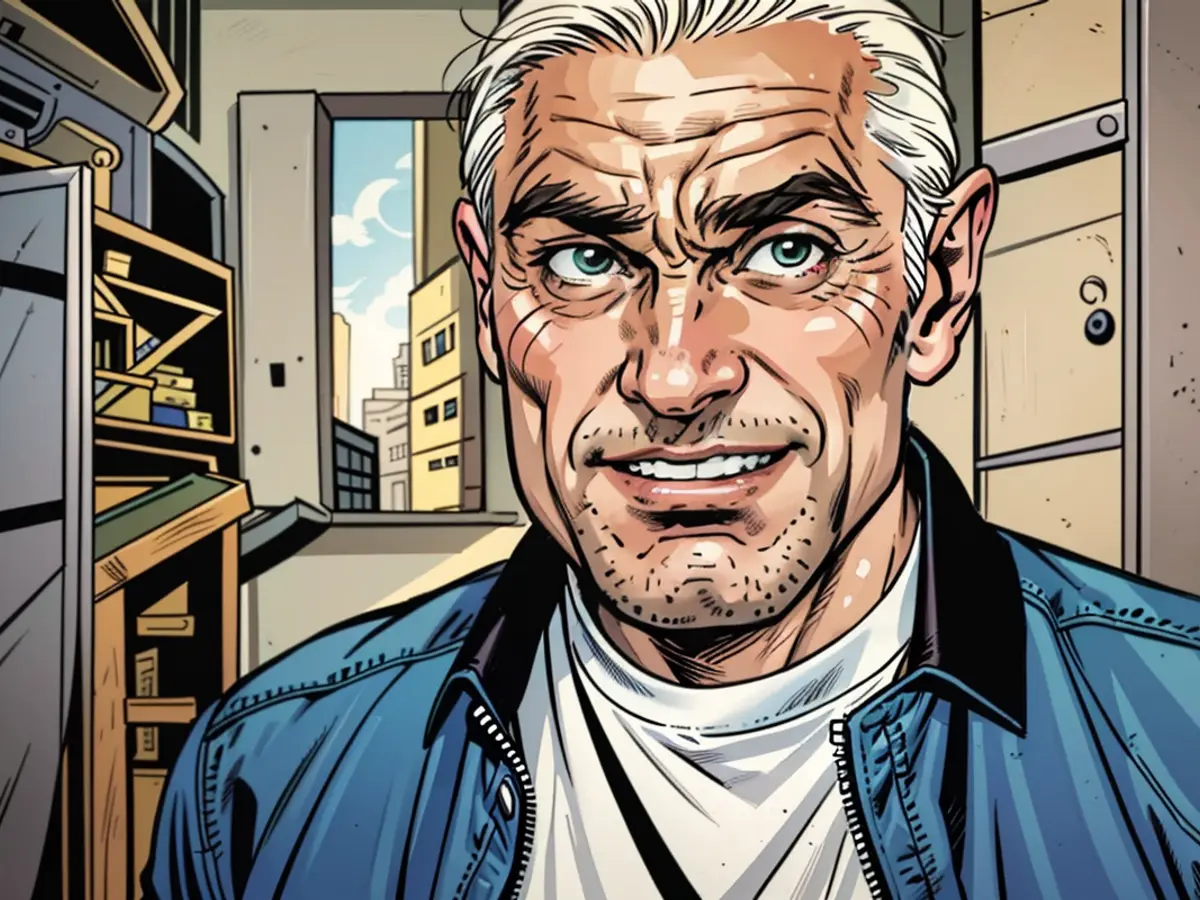soccer - Setback for 96 and DFL? Martin Kind is removed
Martin Kind is no longer the managing director of Second League football club Hannover 96. The Federal Court of Justice (BGH) decided in Karlsruhe that Kind's dismissal two years ago was lawful and now takes effect.
Kind was removed from the leadership of his own parent club Hannover 96 e.V. The club website and Kind at the helm of the extracted professional football sector have been in conflict for years. Kind had successfully defended himself against his dismissal in the Hanover Regional Court and the Celle Higher Regional Court. However, the BGH decision is reportedly "no longer subject to legal challenge."
Kind joins the supervisory board
Kind himself made no personal statement on the judgment. In a statement from the Professional Football Society, it is stated that he will now join its supervisory board. There, he will work constructively with the new managing director.
The conflict between the club and the shareholder side in Hannover has several levels. Indirectly, it also affects the German Football League, although the 50+1 Rule was not discussed or evaluated in any of the court proceedings.
However, the e.V. management has always aimed to protect the 50+1 Rule in Hannover. And with Kind himself, a long-standing club boss was removed, who was always seen as an opponent and a threat to this rule, which only limits the influence of external financial backers in German professional football. It is believed that Kind may have had different views on the failed investor involvement of the DFL than his own club presented.
"Kind deserves thanks and respect"
A bigger cut, however, is the one for Hannover 96. Kind was elected president of the then third-division team in September 1997. In December 1999, he separated the professional football sector. He was the managing director and majority shareholder of this sector with a brief interruption from 2005 to 2006. However, Kind had already transferred his more than 50% stake in the Professional Football Company to his son Matthias before the BGH proceedings.
Even Kind's biggest adversary, Ralf Nestler, chairman of the Hannover 96 e.V. supervisory board, said as such: "Mr. Kind deserves thanks and respect for the many years and much work he has done for Hannover 96. We feel confirmed. We would have preferred a different way. Not over two years. And without a trial would have been our preference."
At the heart of the conflict is the so-called Hannover-96 Contract, which regulates the cooperation between the club and the shareholder side. The 50+1 Rule states that the parent associations must retain the majority of votes in the capital company in the event of the separation of the professional sector and have veto power over their managing directors. However, in the 96 Contract, these managing directors can only be appointed or dismissed if both equally powerful factions in the four-member supervisory board agree.
Conflict over Hannover-96 Contract
Kind always referred to this clause in court. The e.V. management accused Kind of disregarding their veto right in more than 100 cases.
The Bundesgerichtshof ruling in this complex matter, as stated by BGH-spokesperson Kai Hamdorf, declared: "It is true that the revocation decision was made by the sole proprietor of the GmbH, although, according to the statutes, the supervisory board is responsible for such personnel matters. Such a statutory violation renders the decision appealable but not void. And Herr Kind could not appeal the decision because he is not a shareholder of the GmbH."
The introduction of multiple companies in Hannover was implemented to comply with the 50+1 rule. Kind led and owned a majority stake in the professional sector. However, to control it, Hannover 96 Management GmbH was founded. In its supervisory board, there is a stalemate between the capital and association sides. Martin Kind served as managing director until Tuesday. However, it belongs to 100% to Hannover 96 e.V.
At first glance, the 50+1 rule has been undermined in Hanover through this BGH judgment. The club management was able to separate from a shareholder because he did not follow their instructions. However, the Hannover-96 contract remains valid. Therefore, two crucial questions must still be answered:
How will the DFL deal with the structures at Hannover 96, which in essence still contradict the spirit of 50+1? And who will succeed Kind as managing director? Since the association and capital sides have not been able to reach an agreement on this in the two months between the BGH hearing and the BGH judgment.
- Martin Kind's dismissal from Hannover 96, initially ruled unlawful in the Lower Saxony courts, was upheld by the Federal Court of Justice in Karlsruhe.
- Kind's removal from Hannover 96's professional football sector management was a result of conflicts with the club's website, stemming from years of disagreements.
- Despite losing the court case, Kind will join the Professional Football Society's supervisory board to work with the new managing director.
- The conflict between Hannover 96 and its shareholder side involves multiple layers, indirectly influencing the German Football League but not directly discussed in the court proceedings.
- The Hannover-96 Contract regulates cooperation between the club and its shareholder side, requiring both factions to agree on managing director appointments or dismissals.
- Ralf Nestler, Hannover 96's supervisory board chairman, praised Kind's work for Hannover 96 despite the lengthy legal disagreements.
- The Federal Court of Justice judgment acknowledged that Kind violated statutory responsibilities, making his dismissal appealable but not void.
- Hannover 96 implemented multiple companies to adhere to the 50+1 rule, with Martin Kind serving as managing director of the professional sector, leading to a stalemate in the supervisory board.








